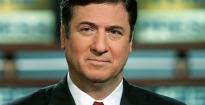Poll: Kaine, Allen Tied in Senate Race
 The Washington Post reports:
The Washington Post reports:
George Allen and Timothy M. Kaine are locked in a dead heat 18 months from Election Day, according to a new Washington Post poll, suggesting that the U.S. Senate race between the Virginia titans may live up to its billing as one of the most competitive contests in the nation.
The candidates are tied at 46 percent among registered voters in the battle to succeedretiring Sen. James Webb (D). Neither Allen (R) nor Kaine (D) is guaranteed his party’s nomination, but the survey shows that both men enjoy huge leads over potential intraparty opponents.
The 2012 contest will play out in a state that has changed dramatically in recent years. Kaine — the former governor and Democratic National Committee chairman — draws strong support in portions of Northern Virginia, which has rapidly gained population, wealth and political clout. Allen, the ex-governor and senator, remains stronger in the rest of the state.
The race may decide which party controls the Senate — a daunting task for Democrats, who must defend 23 seats to Republicans’ 10 next year. And in a state where voters have tossed between Republican and Democratic candidates in recent years, both men must overcome potential vulnerabilities from their pasts: Allen, for the controversial “macaca” incident that helped sink his 2006 Senate campaign, and Kaine for his close identification with President Obama’s policies, which could alienate independents.
Kaine and Allen begin the Senate matchup — which experts say could easily top $30 million — with similarly deep statewide experience, proven fundraising ability and broad name recognition. Both men’s tenure in office is remembered fondly by a majority of Virginians — 58 percent of voters approve of the way Kaine handled his job as governor, while 55 percent approve of Allen’s performance as senator.
The passage of time has had little effect on their standing. Kaine’s current number matches his job-approval rating in an October 2009 Washington Post survey among likely voters, three months before he left office, while Allen’s rating now is similar to what he received among likely voters in October 2006, a month before he lost his reelection bid.

